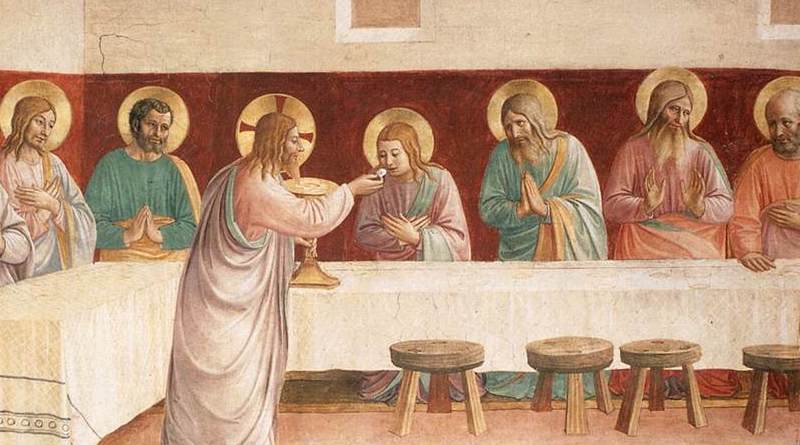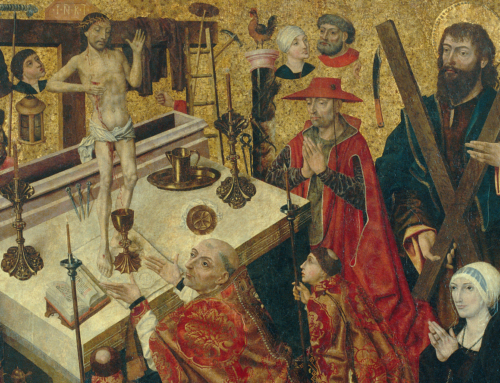A poet once called God “the hound of heaven,” and in every priestly vocation there are moments when the divine baying rings in a man’s ears and he hears those running paws right behind him. At first he interprets the discomfort he feels as conflicting desires or uncertain futures or blurry dreams. He does not yet realize that there is an actor in his life besides himself. Soon enough, however, he discovers that he is running for his life from a God who is asking him to die.
God asks him to die a real death, a death to his own plans and loves and futures. For a man to give in, he has to at least sense that God’s love is stronger than death. He has to have a gut feeling that God’s love will get him through this death and bring him to the unimaginable other side. And he realizes that the only thing worse than facing this death would be not to face this death and to take an easier way out, a shallow, loveless way.
So he accepts this initial death to the world. He goes to seminary or enters religious life. And, as he becomes acquainted with the ways of God, he discovers that the hound of heaven had been pursuing him for far longer than he knew it: Before I formed you in the womb I knew you, before you were born I dedicated you (Jer 1:5). He discovers that God’s hidden plan for his life was there from the beginning, before he ever began to have an inkling of its direction. He sees the world in a new light, radiating the love of a hidden God. He grows in his awareness of the ever-present, ever-pressing love of God. He seeks to abide in this love.
But even as he thinks he’s well on the way to God, the seminarian finds that he’s liable to shy off to the right or left every time the way forward leads up a hill. He grows tired. He seeks half-measures. He wants mere comfort. And then he hears the hound baying close again. He tries to ignore it until he can’t anymore, so he cries out to God in exasperation: Where can I go from your spirit, or where can I flee from your face? (Ps 139:7). And in the ensuing struggle, he again learns to surrender to his pursuer.
Finally the day of ordination nears. And the man again hears the baying of the hound. The chase is still on. Why? Isn’t the chase over? Not really, because ordination does not mean that he has yet surrendered completely. Yes, ordination comes at the end of years of preparation. But it is not graduation. It is not an acknowledgement of accomplishment. It is a gift that asks for another death. And as always in the Christian life, a death is a beginning, the beginning of a new, unimaginable, unmerited life. In having a man ordained, God is asking him to join in the pursuit. Having pursued this man up and down the hills over the years, God is now making him a pursuer. God fills his heart with the desire to be a relentless pursuer of the lost, relentless in mercy, relentless in zeal—in short, to be a priest.
I am less than a month from ordination. In this day and age, it is not hard to see all the reasons that could make the priesthood seem a waste of time: clerical lukewarmness and hypocrisy, shrinking numbers of churchgoers, secularization, parish mergers, scandal . . . the list goes on. But the relentless pursuit of the living God is far more convincing than any depressing statistic. And although the path demands many deaths—deaths no one can predict or imagine—I trust that the divine hound will be on my heels.
For all of us, it is a great comfort that even if we flee for years, the divine hound stays in hot pursuit. And if, for a split second, we listen to his voice rather than flee it, we start to hear meaning in the baying call. I believe if we listen closely, this is what we will hear: Do not fear to discover that you are just beginning. For behold, I make all things new (Rev 21:5).
✠
Image: Fra Angelico, Institution of the Eucharist







